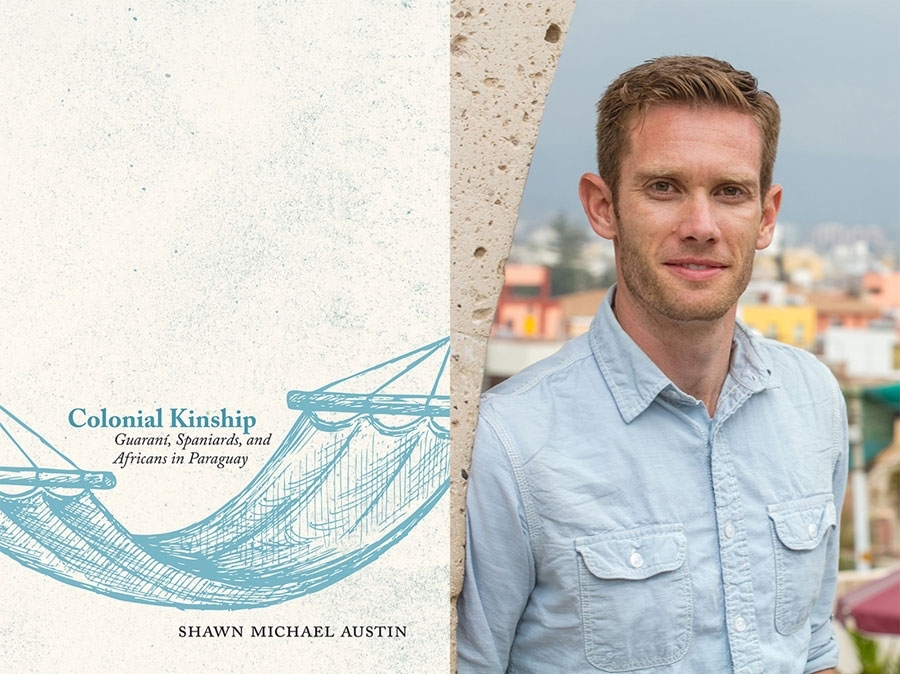
A recent monograph from Shawn Austin, associate professor of history at the U of A, was recognized as a finalist for a national book prize by the American Society for Ethnohistory. Austin's book, Colonial Kinship: Guaraní, Spaniards, and Africans in Paraguay, published by University of New Mexico Press, was named a finalist for the Erminie Wheeler-Voegelin Book Award, awarded to the best book-length contribution to ethnohistory. It received Honorable Mention alongside the 2021 Book Award winner, Heidi Bohaker, who won for Doodem and Council Fire: Anishinaabe Governance through Alliance (University of Toronto Press). The prize is given in memory of Dr. Erminie Wheeler-Voegelin (1903-1988), who was a noted anthropologist and former editor of the Journal of American Folklore.
Colonial Kinship was honored for its unique approach to the history of contact between Spanish colonizers and indigenous Guaraní tribes in Paraguay in the 16th and 17th centuries. Austin argues for a more complex understanding of this period that entails moving away from studying Indigenous peoples in isolation or emphasizing sources and perspectives from Jesuit and Franciscan missionaries. Rather, he uses an approach familiar to anthropologists, focusing on cultural practices that emerged from a broader range of interactions and sites of contact among groups in the region. As he explains in the book, "Colonial Kinship focuses on Guaraní in contexts of contact and exchange with españoles, Africans, and people of mixed descent in reducciones and in Spanish cities, especially in the provincial capital of Asunción." In a statement, the prize reviewers noted the benefits of this approach. They wrote, "Drawing on Guaraní, Spanish, and Portuguese sources and approaching them from a nimble, cross-disciplinary perspective, Austin highlights the voices and priorities of historically marginalized actors, most notably, Indigenous women. In so doing, he recovers a colonial world of contestation, negotiation, mutual identification, and compromise, not just exploitation."
Colonial Kinship was previously recognized in 2021 with the Bandelier/Lavrin Book Prize in Colonial American history from the Rocky Mountain Council of Latin American Studies.
Austin teaches courses on colonial and modern Latin American history, and he is an affiliate faculty member of both the Latin American and Latino Studies Program and the Honors Humanities Project at the U of A. He is currently at work on a new book project analyzing Guaraní material culture and language sources to offer a new account of Indigenous conflicts with Spanish and Portuguese forces in the Rio de la Plata region during the 18th century. He has also been involved in several translation projects in Guaraní and Spanish.
Contacts
Laurence Hare, chair
Department of History
479-575-5890, lhare@uark.edu